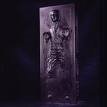I consider thesis VIII below to be the one Altenburg thesis that applies the most to our current crisis in Missouri. What constitutes the "common public confession" of members (congregations and pastors) of the LCMS? I would submit that as a result of a long history of neglected oversight, what is written on paper in Missouri does not represent the public confession of many members of the LCMS, or even of the corporation in Missouri. Many members have deviated from this confession, publicly preaching and teaching and practicing contrary to orthodoxy. Many have even removed "Lutheran" from their congregational names. The public confession of the corporation called the "LCMS" is no longer the "COMMON" public confession of churches maintaining membership in the corporation. The corporation is now even planting a large number of "mission" congregations which have no Lutheran identity, touting them as the "best practice" to emulate, and using our financial contributions to synod to do it. The corporation has thus abandoned its public confession, outwardly confessing a foreign protestant doctrine of missiology referred to as "Ablaze!" It is perhaps yet to be determined if the LCMS has reached the point of no return. I believe we need disputations on the issues that divide us "so that those who are proven may be made manifest." [1 Cor. 11:19] Is such a thing even possible in Missouri today?
Altenburg Theses
I. The true Church, in the most real and most perfect sense, is the totality (Gesamtheit) of all true believers, who from the beginning to the end of the world from among all peoples and tongues have been called and sanctified by the Holy Spirit through the Word. And since God alone knows these true believers (2 Tim. 2:19), the Church is also called invisible. No one belongs to this true Church who is not spiritually united with Christ, for it is the spiritual body of Jesus Christ.
II. The name of the true Church belongs also to all those visible companies of men among whom God's Word is purely taught and the holy Sacraments are administered according to the institution of Christ. True, in this Church there are godless men, hypocrites, and heretics, but they are not true members of it, nor do they constitute the Church.
III. The name Church, and, in a certain sense, the name true Church, belongs also to those visible companies of men who have united under the confession of a falsified faith and therefore have incurred the guilt of a partial departure from the truth; provided they possess so much of God's Word and the holy Sacraments in purity that children of God may thereby be born. When such companies are called true churches, it is not the intention to state that they are faithful, but only that they are real churches as opposed to all worldly organizations (Gemeinschaften).
IV. The name Church is not improperly applied to heterodox companies, but according to the manner of speech of the Word of God itself. It is also not immaterial that this high name is allowed to such communions, for out of this follows:
1. That members also of such companies may be saved; for without the Church there is no salvation.
V. 2. The outward separation of a heterodox company from an orthodox Church is not necessarily a separation from the universal Christian Church nor a relapse into heathenism and does not yet deprive that company of the name Church.
VI. 3. Even heterodox companies have church power; even among them the goods of the Church may be validly administered, the ministry established, the Sacraments validly administered, and the keys of the kingdom of heaven exercised.
VII. 4. Even heterodox companies are not to be dissolved, but reformed.
VIII. The orthodox Church is chiefly to be judged by the common, orthodox, public confession to which its members acknowledge and confess themselves to be pledged. CSM
J. F. Köstering, Auswanderung der sächsischen Lutheraner im Jahre 1838, ihre Niederlassung in Perry-Co., Missouri, und damit zusammenhängende interessante Nachrichten, nebst einem wahrheitsgetreuen Bericht von dem in den Gemeinden zu Altenburg und Frohna vorgefallenen sog. Chiliastenstreit in den Jahren 1856 und 1857 (St. Louis, 1867), pp. 51–52; W. O. Forster, Zion on the Mississippi (St. Louis, 1953), pp. 523–525.










No comments:
Post a Comment